In visiting any Charm City Run location, you’ll find an outstanding selection of sports nutrition products. There’s packet after packet of colorful gels, gummies, cookies, bars, drink powders and concentrate. If you’ve ever stared blankly at those shelves, not sure where to begin, let’s break down the what, when and why for the most common varieties of products:
Three caveats before we get started:
1. Everyone is a little different. The sports nutrition that your running buddy swears by may send you straight to the porta-potty. It’s up to you to experiment long before race day to determine what works best for you.
2. Note that examples of products are not endorsements.
3. If you are diabetic, hypoglycemic or have other conditions impacting your blood sugar, you should consult a medical professional with any questions about use of these products.
Fuel for Long Runs
Who needs it: Those who run longer than 75 minutes.
When to take it: Throughout long runs and sometimes immediately before.
Try: GU, Hammer Gel, Sport Beans, Honey Stinger gels and waffles, Huma, Hammer Heed drink powder.
Are you running the NCR 20 Miler? Do you have a fall marathon on the calendar? Fully carb loaded, your body can only store around 60-90 minutes of carbohydrates, the body’s most efficient energy source. So how the heck are you going to finish a 26.2 mile marathon without running out of gas and hitting that proverbial wall? By making sure you arrive at the start line having eaten well in the preceding days and hours, by starting your race conservatively (and not burning through those scant carb stores—more on that topic HERE), and by supplementing with carbohydrates on the course, you can successfully cross the finish line of a distance race.
There are a wide variety of carb-rich choices in this category: First, there are gel packets made by a variety of companies in every possible flavor conceivable, from fruit and chocolate, to root beer and cucumber. Then there are sleeves of gummy blocks, jelly beans, thin waffle cookies and drinks. Some of these products have caffeine in addition to carbohydrates, so if you’re sensitive to caffeine, in a positive or a negative way, you’ll want to consider that.
On race day, depending on your size and the level of effort you exert, a runner typically needs somewhere between 30-60 grams of carbohydrate per hour. That’s a huge range, so use your long runs as the laboratory to experiment, gather evidence as to what works and what doesn’t, and fine tune long before race day.
Fuel for REALLY Long Runs
Who needs it: Runners racing longer than the marathon distance.
When to take it: During loooooong runs (several hours).
Try: Hammer Perpetuem, Clif Bar Organic Energy Food Pizza Margherita and Sweet Potato with Salt.
If you’re competing in a 50K (30+ miles), a 50-miler or longer race (yes, there are such events), you can imagine that carbohydrates alone won’t fuel your efforts and keep hunger at bay. Many runners choose a fueling strategy that includes carb supplements and real food in addition to prepackaged fuel that has not only carbs, but protein and fat as well. For the marathon or shorter distances, fat and protein may not be appropriate fuel because both are more intensive to digest and don’t provide immediate fuel like the straight carbohydrate supplements.
Electrolyte Replacement
Who needs it: Some runners who sweat heavily, especially if running long in high heat and/or humidity.
When to take it: During a run of an hour or longer in warm temperatures.
Try: Nuun, Motive Pure, Hammer Endurolytes.
If you’ve been running during this steamy summer, likely you’ve noticed white chalky streaks of salt caked on your body or face at the end of a run. When you sweat, you lose not only water, but also salt. If you only consume water during a long, hot run, there is a risk that your electrolytes falling out of balance.
Key electrolytes including sodium, potassium, calcium and magnesium serve several functions in our bodies, like controlling movement of fluids and nutrients across cells, and helping muscles contract during exercise. If you’re taking in carbohydrate supplements, most have sodium and other electrolytes in them, but some runners find that electrolyte tabs and drinks help them to feel more comfortable during summer runs. Not every runner will need to consume these supplements. It comes down to personal preference as to whether or not you take them and which electrolyte supplement you choose to take.
Note that taking in too much sodium may result in increased thirst or GI discomfort. If you have a sensitive digestive system, you’ll also want to look for sugar alcohols and artificial sweeteners that may appear in these supplements and test them carefully.
Recovery Nutrition
Who needs it: Those running longer than an hour. You need to eat to promote recovery so you can gain strength from your runs.
When do you take it: As soon as possible after a long run.
Try: Hammer Recoverite, Clif Bars.
Eating a nutritious snack after long workouts an hour or longer helps you gain strength and recover more quickly. Skipping that snack could lead to poor recovery and an out-of-control appetite in the following hours and days. A widely accepted ratio for a perfect post-long run snack is about 3 or 4 grams of carbohydrates to 1 gram of protein. Charm City Run carries a variety of foods and drinks formulated with that ratio to provide a quick, convenient boost after a run when you’re not able to sit down to a proper meal.
To see how close a food is to that 3-4 carb : 1 protein ratio, subtract grams of fiber from grams of carbohydrates to get the net carbohydrates in a food. Then divide net carbs by the grams of protein, and see how close it is to 3 or 4.
Examples:
Hammer Recoverite
33 grams of carbohydrate - 0 grams of fiber = 33 net grams of carbohydrate. There are 10 grams of protein, so the ratio of carbs to protein is 3.3 : 1.
Chocolate Chip Clif Bar
45 grams of carbohydrate - 4 grams of fiber = 41 net grams carbohydrate. There are 10 grams of protein, so the ratio of carbs to protein is 4.1 : 1.
These options are quick and easy, but smart runners also incorporate real food into their post run snacks like a home-blended smoothie with frozen fruit, nuts, seeds and/or organic plain yogurt; or whole wheat toast with banana and natural peanut or almond butter. For tough workouts, follow up with a protein-rich meal shortly after your snack.
If you still have questions, ask a Charm City Run team member, or connect with a professional like me for additional support!
learn more from lauren!
Want to educate yourself even more regarding fueling for long distance races? Join Lauren at the Timonium store on Wednesday, September 14 at 6:30 pm for a nutrition talk.
About the Author: Lauren Shafer
Lauren is a certified Health Coach who helps busy Baltimoreans articulate their health + wellness goals, and make measurable, sustainable diet and lifestyle changes for lasting transformation. Though she would never be described as athletic in her youth, Lauren started running as an adult, begrudgingly at first, until she discovered she actually enjoyed it. Now an 8-time marathoner and 3-time ultra-marathoner, you’ll frequently find Lauren running on roads and trails with her husband John and dog Osita.
To learn more about Lauren and check out her health coaching and blog, visit www.live-full.com or www.facebook.com/LiveFullBaltimore. Contact her at lauren@live-full.com.







